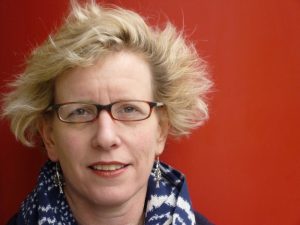A Conversation with Dr. Amanda Adler
December 1, 2016
Gillings School alumna Amanda Adler, MD, PhD, is chair of a multidisciplinary technology appraisal committee at the National Institute for Health Excellence (NICE) in London and consultant physician at Addenbrooke’s Hospital in Cambridge (U.K.). Adler spoke recently with Crystal Hinson Miller, MA, CFRE, associate dean for advancement at the Gillings School.
Crystal Miller (CM):
Tell us about your journey from California to Chapel Hill to the United Kingdom. You keep traveling eastward!
Amanda Adler (AA):
I was born and raised in Santa Monica, a product of the public schools there, which are excellent. When I was seven, my father, who was working in the movie industry, announced the family was moving to Tokyo for a year – so I’ve been even farther east! That year was formative in my life. It was then I decided I wanted an international career.

Dr. Amanda Adler (Contributed photo)
As I grew older, I focused on international health as a career path. I studied economics as an undergraduate because of an internship at the World Health Organization’s water sanitation and supply department. I came to appreciate that health resources were limited and had to be used wisely. After the internship, I came back to the University of California and earned a degree in economics, already knowing I wanted to go both to medical school and public health school.
People in Santa Monica were skeptical that I would be admitted to UNC, but I persisted. I learned about the MD/PhD program, and that’s what I knew I wanted. Since I’d always loved learning about epidemics, I knew epidemiology would be the thing for me.
Getting to the U.K. was a serendipitous journey. After my internship and residency at the University of Washington at Seattle and a fellowship at the Fred Hutchinson Cancer Research Institute, I went to Britain, single and eager, and physically carried my CV to Oxford. It worked. They asked me to interview the next day, and the following week, I was a faculty member.
I was attracted to the British style of research. In the U.K., as you know, people pay for health care through their taxes, and they’re very keen on paying only for things that work. The chronic disease clinical trials were pragmatic, addressing both simple and very important questions. For instance, in Type 2 diabetes, does lowering blood sugar lower risk for problems related to diabetes? I was hired as the epidemiologist for that trial (the U.K. Prospective Diabetes Study), and essentially, I think I’ve decided to stay, particularly since I met my husband here.
CM:
What do you remember about your time at UNC’s School of Public Health? How did your epidemiology training help you solve real-world problems?
AA:
I remember that it was rigorous. Very high standards. Knowing now what the British educational system is like, I appreciate that I was able to take classes at UNC. A British doctorate doesn’t require any coursework; one just takes off and does a project on one’s own. Now, I appreciate having studied subjects that I wouldn’t have necessarily chosen for myself – such as biostatistics. It’s unbelievably important in all my work.
My current role at the National Institute for Health Excellence (NICE) certainly contributes to public health by bringing together medicine and epidemiology. Britain has generous, if limited, funding for health, and health care is free. The government has the motivation and moral responsibility to spend its health-care tax money wisely. We look at new drugs, new technologies and new educational systems, and we evaluate how likely they are to help the population and what the costs are. We look not just at the price of drugs, but the costs over a lifetime that might result as a consequence of adopting a new drug into the health-care system.
That is one example of applying what I learned at UNC. Another is the notion that conducting very practical clinical trials can translate to patient benefit.

CM:
While you were at UNC, did you take advantage of any opportunities unique to the public health school?
AA:
I was awarded a scholarship for the MD/PhD program. That certainly inspired me to train longer than I might have. It also meant I was essentially debt-free when I graduated, which allowed me to take advantage of opportunities I couldn’t have otherwise. I was aware that it was a gift to have the Research Triangle Park nearby, with agencies such as the National Institute of Environmental Health Sciences (NIEHS) and companies such as Quintiles and GSK. Being trained in medicine, I was able to connect with other physicians who were interested in clinical epidemiology, which led to some wonderful discussions. The proximity of UNC’s medical school to the public health school shouldn’t be underestimated, either. That physical closeness facilitates great collaborations.
CM:
What advice would you give current students at the Gillings School?
AA:
- Change can occur in public health; always be open-minded to the change you can bring about.
- Don’t hold yourself back. If you aspire for things, the worst that can happen is that you won’t get them – that’s still much better than not having tried.
- Always ask the ‘so what?’ questions for projects you take on. Will the answers contribute to bettering society and bettering yourself, in terms of return on investment of time and energy? Keep your standards high – and then go for it!
- Share the spotlight! Always give your colleagues credit on joint projects.
Adler earned a medical degree at UNC in 1988 and a doctorate in epidemiology in 1992. She enjoys tennis and swimming, opera and travel, and is inspired by her 94-year-old parents.
Carolina Public Health is a publication of the University of North Carolina at Chapel Hill Gillings School of Global Public Health. To view previous issues, please visit sph.unc.edu/cph.
